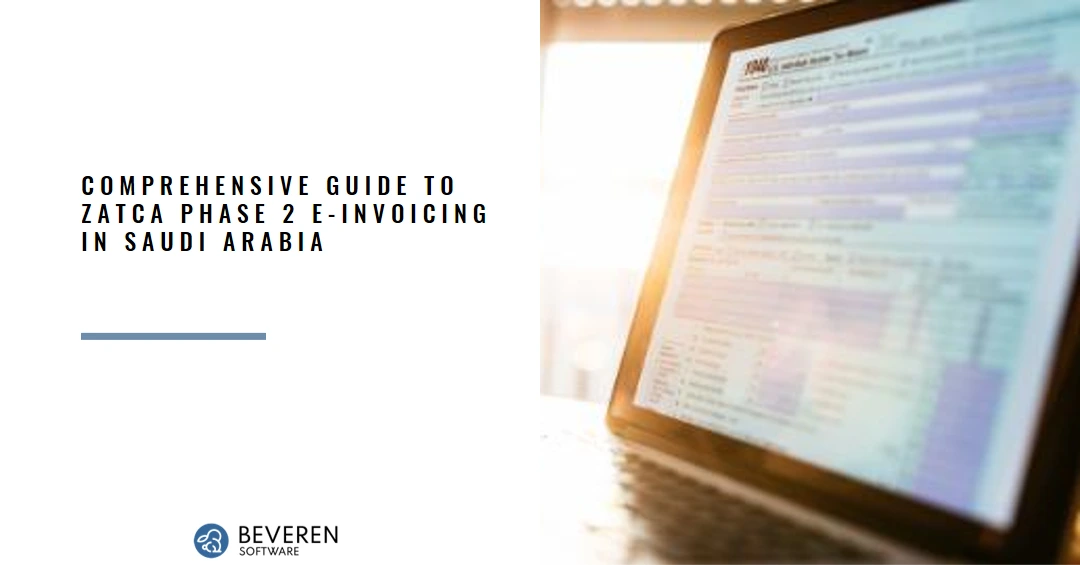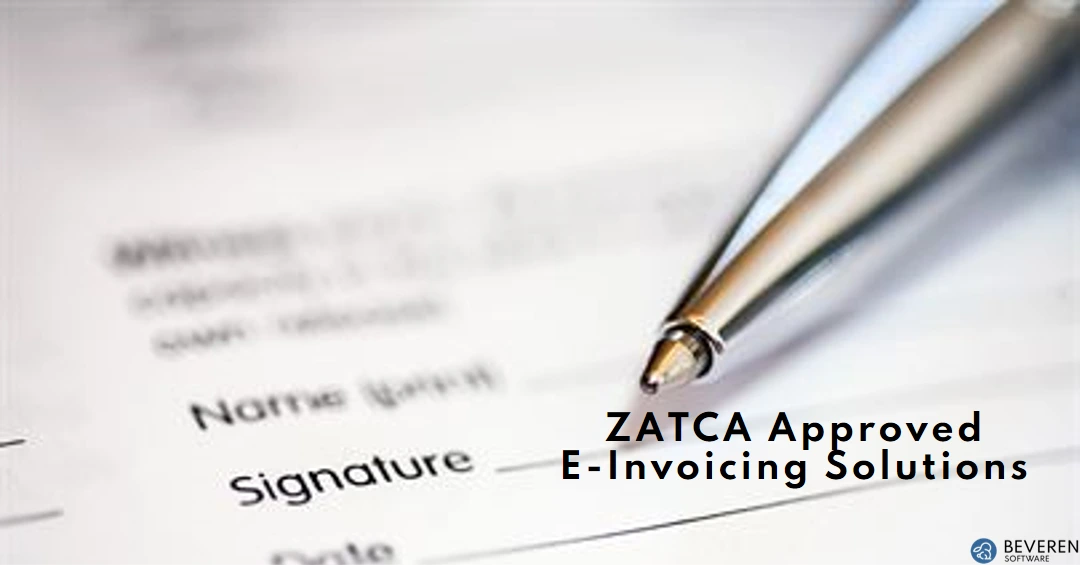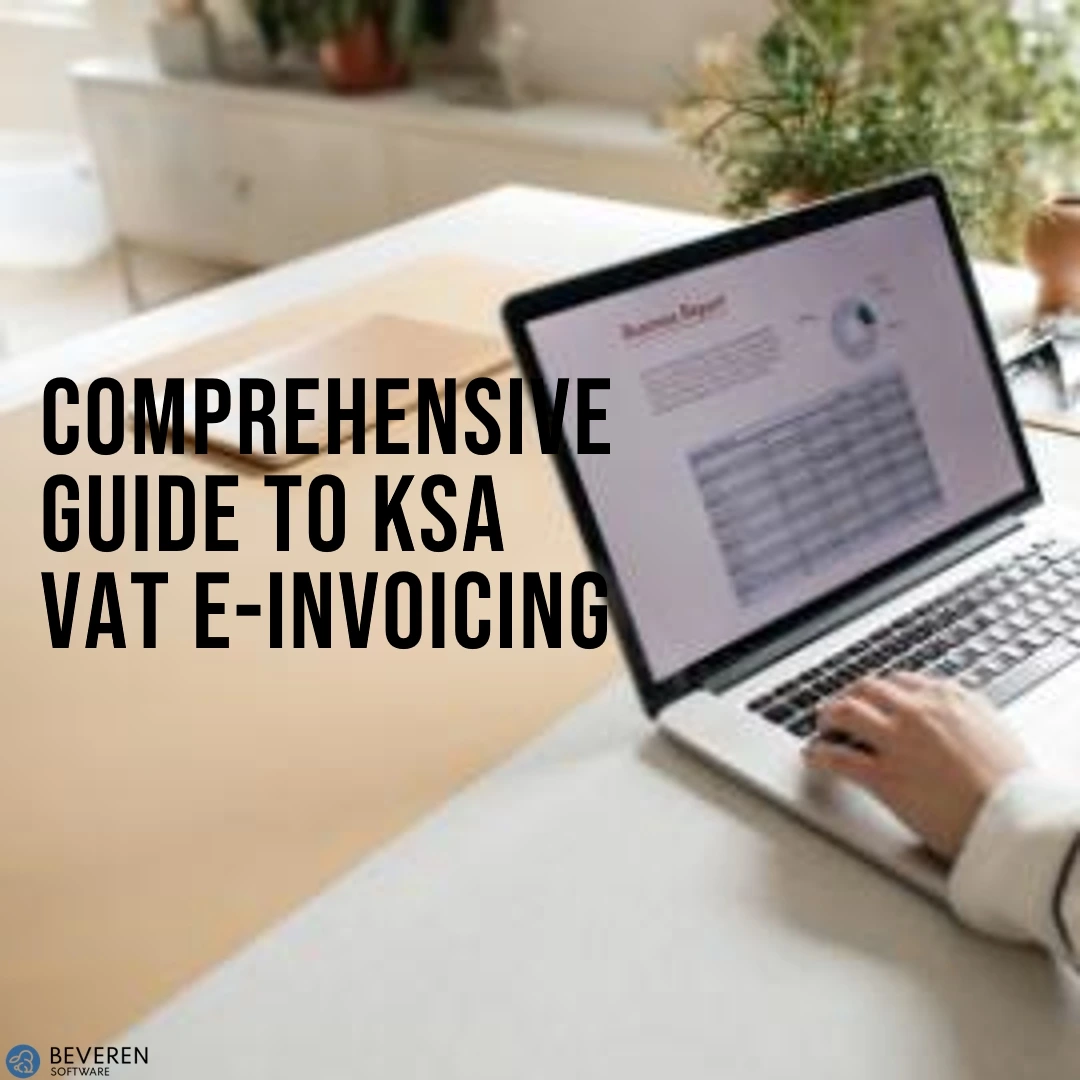Introduction ZATCA (Zakat, Tax and Customs Authority) Phase 2 is a critical step for businesses operating in Saudi Arabia. It marks a significant move towards digitalization and transparency in tax reporting. As the Saudi government intensifies its efforts to ensure accurate and timely tax payments, businesses must navigate the complexities of compliance. This article will explore the top challenges companies face during the ZATCA Phase 2 implementation and how ERPNext offers effective solutions to these challenges. Understanding ZATCA Phase 2 What is ZATCA Phase 2? ZATCA Phase 2 is the second phase of the Saudi Arabian tax authority’s digital transformation initiative. This phase focuses on real-time invoice reporting, data security, and ensuring that businesses adhere to stricter tax compliance regulations. Key Differences from Phase 1 While Phase 1 required businesses to maintain electronic records, Phase 2 mandates real-time reporting of invoices to the tax authority. This phase introduces more stringent requirements for data integration, security, and accuracy. Compliance Requirements Businesses must ensure that their invoicing systems are compliant with ZATCA’s technical specifications. This includes the use of specific formats, secure transmission of data, and adherence to strict timelines. Challenge 1: Real-Time Invoice Reporting The Complexity of Real-Time Reporting One of the most significant challenges in ZATCA Phase 2 is the requirement for real-time reporting of invoices. Businesses must report invoices to the tax authority as they are issued, which can be a complex and time-consuming process. Consequences of Non-Compliance Failure to comply with real-time reporting can lead to penalties, fines, and potential disruptions in business operations. The accuracy and timeliness of reports are crucial to avoid these issues. How ERPNext Simplifies This Process ERPNext offers an automated invoicing system that ensures all invoices are reported in real-time. This not only simplifies the compliance process but also reduces the risk of errors and delays. Challenge 2: Data Integration Across Systems Issues with Integrating ZATCA Requirements Many businesses struggle with integrating ZATCA’s requirements across their existing systems. This can lead to data silos, where information is not adequately shared or utilized across departments. Common Data Silos in Businesses Data silos occur when different departments within a business use separate systems that do not communicate effectively with each other. This can cause significant challenges in maintaining accurate and consistent records. ERPNext’s Seamless Integration Capabilities ERPNext provides robust integration features that allow businesses to connect their existing systems seamlessly. This ensures that all departments have access to the same data, reducing the likelihood of errors and improving overall efficiency. Challenge 3: Accurate Tax Calculations Importance of Precise Tax Calculations Accurate tax calculations are essential for businesses to remain compliant with ZATCA’s regulations. Any errors in tax calculations can lead to penalties and financial losses. Risks Associated with Manual Calculations Manual tax calculations are prone to errors, especially as tax regulations become more complex. Businesses that rely on manual processes may find it challenging to keep up with the changing requirements. How ERPNext Automates Tax Calculations ERPNext automates the tax calculation process, ensuring that all calculations are accurate and up-to-date. This not only saves time but also reduces the risk of costly errors. Challenge 4: Ensuring Data Security and Privacy Data Security Concerns with ZATCA With the introduction of real-time reporting, businesses must ensure that their data is secure and protected from unauthorized access. Data breaches can lead to severe penalties and damage to a company’s reputation. Regulatory Requirements for Data Privacy ZATCA requires businesses to comply with strict data privacy regulations. This includes secure storage and transmission of data, as well as ensuring that only authorized personnel have access to sensitive information. ERPNext’s Security Features ERPNext offers advanced security features, including encryption, access controls, and regular security updates. These features help businesses protect their data and comply with ZATCA’s privacy requirements. Challenge 5: Adapting to Frequent Regulatory Changes The Dynamic Nature of Tax Regulations Tax regulations in Saudi Arabia are constantly evolving, making it challenging for businesses to keep up with the latest requirements. Failure to adapt to these changes can result in non-compliance and penalties. Business Challenges in Keeping Up Businesses must continuously update their systems and processes to comply with new regulations. This can be time-consuming and costly, especially for smaller businesses with limited resources. ERPNext’s Adaptability to Regulatory Updates ERPNext is designed to adapt to regulatory changes quickly. Its flexible architecture allows businesses to update their systems easily, ensuring ongoing compliance with ZATCA’s requirements. Expert Insights on ZATCA Compliance Interview with a Tax Compliance Expert To gain a deeper understanding of ZATCA compliance, we interviewed a tax compliance expert. According to the expert, businesses should prioritize automation and integration to streamline their compliance processes. Insights from Businesses Already Using ERPNext Several businesses in Saudi Arabia have already implemented ERPNext to comply with ZATCA Phase 2. These businesses report significant improvements in efficiency and accuracy, thanks to ERPNext’s automation features. Future Outlook for ZATCA and ERPNext Upcoming Changes in ZATCA Regulations As Saudi Arabia continues its digital transformation, further changes to ZATCA regulations are expected. Businesses must stay informed about these changes to ensure ongoing compliance. The Future of ERPNext in Compliance Management ERPNext is well-positioned to continue supporting businesses in their compliance efforts. Its adaptability and robust features make it an ideal solution for managing the complexities of ZATCA compliance. Practical Tips for Businesses Steps to Prepare for ZATCA Phase 2 Conclusion ERPNext ZATCA Phase 2 presents several challenges for businesses in Saudi Arabia, from real-time invoice reporting to data security and frequent regulatory changes. However, ERPNext offers comprehensive solutions to these challenges, enabling businesses to streamline their compliance processes and avoid penalties. By adopting ERPNext, companies can ensure ongoing compliance with ZATCA’s requirements and focus on their core business operations. FAQ Section Common Questions about ZATCA Phase 2 The deadline varies depending on the size and nature of the business. Companies should consult ZATCA’s official guidelines for specific dates. ERPNext automates the invoicing process, ensuring that all invoices are reported in real-time to the tax authority. Yes, ERPNext includes
Introduction Welcome to our comprehensive guide to ZATCA Phase 2 App Setup and Features. In this guide, we’ll delve into the intricate details of setting up the ZATCA Phase 2 app and explore its myriad features to ensure you harness its full potential. Understanding ZATCA Phase 2 Before diving into the setup process, let’s first grasp the essence of ZATCA Phase 2. The ZATCA (Zakat, Tax, and Customs Authority) Phase 2 app is a sophisticated tool designed to streamline tax-related processes, enhance compliance, and facilitate efficient tax management for businesses and individuals alike. Developed with cutting-edge technology and meticulous attention to detail, this app represents a significant leap forward in the realm of tax administration. Setting Up ZATCA Phase 2 Step 1: Downloading the App To embark on your journey with ZATCA Phase 2, the initial step is to download the app from the official app store compatible with your device’s operating system. Whether you’re an iOS aficionado or an Android enthusiast, rest assured that ZATCA Phase 2 caters to both platforms, ensuring seamless accessibility for all users. Step 2: Installation and Account Creation Once the app is downloaded, proceed with the installation process, following the prompts displayed on your screen. Upon successful installation, it’s time to create your account. ZATCA Phase 2 boasts a user-friendly interface, guiding you effortlessly through the account creation process. Simply provide the required information, and voila! Your account is ready to go. Step 3: Verification and Authentication Security is paramount in the realm of tax management. Therefore, ZATCA Phase 2 employs stringent verification and authentication measures to safeguard your data. Expect to undergo a verification process, which may involve validating your identity through various means, such as biometric authentication or verification codes sent to your registered mobile number or email address. Step 4: Customization and Preferences With your account verified and authenticated, it’s time to personalize your ZATCA Phase 2 experience. Explore the app’s settings to tailor it according to your preferences. From language preferences to notification settings, ZATCA Phase 2 offers a plethora of customization options to ensure a user experience tailored to your liking. Exploring Features Real-Time Tax Updates Stay abreast of the latest tax regulations, updates, and announcements with ZATCA Phase 2’s real-time updates feature. Receive notifications directly to your device, ensuring you’re always in the loop regarding changes that may impact your tax obligations. Document Management Bid farewell to cumbersome paperwork and embrace the convenience of digital document management with ZATCA Phase 2. Upload, store, and manage your tax-related documents effortlessly within the app’s secure ecosystem. Compliance Assistance Navigating the intricacies of tax compliance can be daunting. Fortunately, ZATCA Phase 2 offers comprehensive compliance assistance, guiding you through the process and providing insights to ensure adherence to regulatory requirements. From tax filing deadlines to compliance checklists, leverage ZATCA Phase 2’s robust features to stay on the right side of the law effortlessly. Interactive Reporting Tools Gain valuable insights into your tax obligations and financial standing with ZATCA Phase 2’s interactive reporting tools. From balance sheets to income statements, access comprehensive reports at your fingertips, empowering you to make informed financial decisions with confidence. Seamless Integration In today’s interconnected world, seamless integration is key. ZATCA Phase 2 seamlessly integrates with a myriad of third-party platforms and systems, facilitating data exchange and enhancing workflow efficiency. Whether you’re syncing financial data from accounting software or integrating with government portals, ZATCA Phase 2 ensures interoperability without compromising on security or data integrity. Enhanced Security Measures Protecting sensitive tax information is paramount. With ZATCA Phase 2’s enhanced security measures, rest assured that your data is fortified against unauthorized access and cyber threats. From encryption protocols to multi-factor authentication, ZATCA Phase 2 employs state-of-the-art security mechanisms to safeguard your information, ensuring peace of mind in an increasingly digital landscape. Conclusion In conclusion, ZATCA Phase 2 represents a paradigm shift in tax management, offering a comprehensive suite of features designed to streamline processes, enhance compliance, and empower users with actionable insights. From setup to utilization, this guide has elucidated the intricacies of ZATCA Phase 2, equipping you with the knowledge and tools necessary to harness its full potential. Embrace the future of tax management with ZATCA Phase 2 and embark on a journey towards efficiency, compliance, and financial empowerment.
In the ever-evolving landscape of digital transformation, the Kingdom of Saudi Arabia takes another leap forward with the implementation of Phase 2 of the ZATCA (Zakat, Tax, and Customs Authority) E-Invoicing initiative. This excerpt focuses on the role of ERPNext in streamlining electronic invoicing processes, offering businesses a comprehensive solution to navigate the intricacies of ZATCA Phase 2 seamlessly.
As businesses adapt to the evolving regulatory framework, ERPNext emerges as a powerful tool for organizations looking to enhance their invoicing practices. This guide illuminates the symbiotic relationship between ERPNext and ZATCA Phase 2, providing practical insights into how businesses can leverage the ERP system to align with regulatory requirements, ensure compliance, and optimize their invoicing workflows.
As Saudi Arabia continues its digital transformation journey, the second phase of the ZATCA (Zakat, Tax, and Customs Authority) E-Invoicing initiative emerges as a pivotal milestone. This comprehensive guide aims to navigate businesses through the intricacies of Phase 2, providing invaluable insights into the electronic invoicing landscape in the Kingdom.
The ZATCA Phase 2 E-Invoicing system builds upon the success of its predecessor, enhancing efficiency, transparency, and compliance in the realm of financial transactions. This guide delves into the key components of the Phase 2 implementation, unraveling the technical nuances, legal requirements, and practical considerations that businesses need to embrace for seamless adoption.
In the ever-evolving landscape of digital transformation, the Kingdom of Saudi Arabia (KSA) has taken significant strides towards modernizing its invoicing systems through the Saudi Arabian Tax Authority (ZATCA). With the introduction of e-invoicing, businesses are faced with the challenge of Zatca phase 2 integration of multiple stores to comply with Phase 2 of the KSA e-Invoicing system. This article delves into the intricacies of this integration process, outlining steps, benefits, challenges, and best practices for seamless implementation. Introduction to ZATCA and KSA e-Invoicing ZATCA, the regulatory body overseeing taxation in Saudi Arabia, introduced the KSA e-Invoicing system to digitize and streamline invoicing processes. Phase 1 of the implementation mandated large businesses to adopt electronic invoicing. Phase 2 expands this requirement to include medium and small-sized enterprises (SMEs), necessitating the integration of multiple stores to facilitate compliance. Understanding ZATCA Phase 2 Integration Explanation of Phase 2 Phase 2 of KSA e-Invoicing extends the scope of electronic invoicing to encompass SMEs, marking a significant milestone in the country’s digital transformation journey. It aims to enhance transparency, reduce tax evasion, and improve overall efficiency in financial transactions. Importance of Integration for Multiple Stores For businesses operating multiple stores, integrating with ZATCA is paramount to ensure compliance with Phase 2 regulations. Failure to integrate can result in penalties, operational disruptions, and reputational damage. Integrating Multiple Stores with ZATCA for Phase 2 Implementation Requirements for Integration Before embarking on the integration process, businesses must ensure they meet the necessary requirements set forth by ZATCA. This includes having a valid Tax Identification Number (TIN) and adopting compatible invoicing software. Steps to Integrate with ZATCA Benefits of Integration Streamlined Invoicing Process Integration with ZATCA streamlines the invoicing process, reducing manual errors and expediting transactional workflows. Compliance with Regulations By integrating with ZATCA, businesses ensure compliance with Phase 2 regulations, mitigating the risk of non-compliance penalties. Enhanced Efficiency and Accuracy Automated invoicing processes enhance efficiency and accuracy, enabling businesses to focus on core operations rather than administrative tasks. Challenges and Solutions Common Challenges Faced Integration challenges may include data synchronization issues, software compatibility issues, and staff training requirements. Solutions to Overcome Integration Challenges Engaging with experienced software providers, conducting comprehensive training sessions, and implementing robust data management protocols can help overcome integration challenges. Best Practices for Seamless Integration Utilizing Reliable Software Solutions Investing in reliable software solutions with a proven track record of successful integration can streamline the implementation process. Training and Support for Staff Providing comprehensive training and ongoing support to staff members ensures smooth adoption and utilization of integrated systems. Future Outlook and Adaptation Anticipating future changes in regulatory requirements and continuously adapting integration processes is crucial for long-term compliance and efficiency. Conclusion Integration with ZATCA for Phase 2 implementation of KSA e-Invoicing is a critical step for businesses operating multiple stores in Saudi Arabia. By understanding the requirements, overcoming challenges, and adopting best practices, businesses can streamline their invoicing processes, ensure compliance, and position themselves for future success in the digital economy. FAQs Non-compliance may result in penalties, operational disruptions, and damage to the reputation of the business. Businesses should conduct a thorough assessment of their systems and engage with software providers offering solutions tailored to ZATCA’s specifications. Comprehensive staff training is essential to ensure smooth adoption and utilization of integrated systems, minimizing disruptions and maximizing efficiency. While possible, switching software providers post-integration may entail additional costs and complexities. It’s advisable to choose a reliable provider from the outset. Regularly monitoring updates from ZATCA and engaging with industry associations can help businesses stay informed about evolving regulations and adapt their processes accordingly.
Understanding ZATCA Approved E-Invoicing Solutions In the realm of tax regulations in Saudi Arabia, the advent of ZATCA e-invoicing solutions has heralded a significant transformation. ZATCA, or the Zakat, Tax, and Customs Authority, plays a pivotal role in regulating fiscal matters within the Kingdom. With the increasing digitization of various processes, including invoicing, ZATCA has introduced a framework for approved e-invoicing solutions, aiming to streamline tax compliance and enhance transparency. Advantages of ZATCA Approved E-Invoicing Solutions Enhanced Compliance and Accuracy ZATCA e-invoicing solutions offer businesses a robust platform to ensure compliance with tax regulations. By digitizing the invoicing process, companies can mitigate errors and discrepancies, thereby fostering greater accuracy in their financial transactions. This not only simplifies tax reporting but also reduces the risk of non-compliance penalties. Real-time Monitoring and Reporting One of the key benefits of ZATCA e-invoicing solutions is the ability to monitor transactions in real-time. By leveraging digital platforms, businesses can track invoicing activities seamlessly, enabling proactive identification of potential issues or irregularities. This real-time reporting mechanism empowers organizations to maintain transparency and uphold regulatory standards effectively. Cost Efficiency and Resource Optimization Traditional paper-based invoicing processes often entail significant costs associated with printing, mailing, and storage. In contrast, ZATCA e-invoicing solutions offer a cost-effective alternative by eliminating the need for paper documentation. Moreover, the automation capabilities inherent in digital invoicing systems enable resource optimization, freeing up personnel to focus on value-added tasks. Integration and Interoperability ZATCA approved e-invoicing solutions are designed to integrate seamlessly with existing accounting and enterprise resource planning (ERP) systems. This interoperability facilitates smooth data exchange between different platforms, thereby streamlining workflow processes. Additionally, integration with ZATCA’s regulatory framework ensures alignment with tax guidelines and reporting requirements. Implementation Considerations for Businesses Assessing Compatibility and Scalability Before adopting ZATCA e-invoicing solutions, businesses should conduct a thorough assessment of their existing infrastructure and operational needs. It is essential to ensure compatibility with existing systems and evaluate scalability to accommodate future growth requirements. This proactive approach helps organizations make informed decisions regarding technology investments and implementation strategies. Training and Change Management Successful implementation of ZATCA e-invoicing solutions necessitates adequate training and change management initiatives. Employees must be equipped with the necessary skills to navigate the new digital platforms effectively. Moreover, fostering a culture of innovation and adaptability within the organization can facilitate smooth transition and acceptance of technological changes. Compliance and Data Security Compliance with ZATCA regulations and adherence to data security standards are paramount considerations for businesses adopting e-invoicing solutions. Companies must prioritize data privacy and implement robust security measures to safeguard sensitive financial information. This entails encryption protocols, access controls, and regular audits to mitigate potential risks and ensure regulatory compliance. Leveraging Technological Innovations for Tax Compliance In the ever-evolving landscape of tax regulations, embracing technological innovations is paramount for businesses seeking to maintain compliance and operational efficiency. ZATCA approved e-invoicing solutions exemplify this trend, offering a dynamic platform that integrates seamlessly with modern accounting systems. By harnessing the power of digital invoicing, organizations can transcend traditional constraints and unlock new avenues for growth and regulatory adherence. Driving Business Agility and Competitiveness Beyond mere compliance, ZATCA approved e-invoicing solutions confer a strategic advantage to businesses by fostering agility and competitiveness. The ability to automate invoicing processes, reconcile transactions in real-time, and generate insightful analytics empowers decision-makers with actionable intelligence. This agility enables organizations to adapt swiftly to market dynamics, capitalize on emerging opportunities, and maintain a competitive edge in an ever-changing landscape. Navigating Complex Regulatory Frameworks Navigating the intricate web of tax regulations can be daunting for businesses, especially in regions with stringent compliance requirements such as Saudi Arabia. ZATCA approved e-invoicing solutions serve as a beacon of clarity amidst this complexity, providing a standardized framework for tax reporting and documentation. By aligning with ZATCA’s regulatory guidelines, businesses can navigate the intricacies of tax compliance with confidence and precision. Fostering Collaboration and Transparency Collaboration between businesses and regulatory authorities is essential for fostering transparency and mutual trust. ZATCA approved e-invoicing solutions facilitate seamless communication and data exchange between stakeholders, enhancing transparency and accountability in financial transactions. This collaborative ecosystem not only strengthens relationships between businesses and regulators but also instills confidence in investors and stakeholders. Embracing the Future of Fiscal Governance As the global economy continues to embrace digital transformation, the future of fiscal governance lies in embracing innovative solutions such as ZATCA approved e-invoicing. By leveraging advanced technologies such as blockchain and artificial intelligence, these solutions hold the promise of revolutionizing tax compliance and regulatory oversight. Through continued innovation and collaboration, businesses and regulatory bodies can pave the way for a more efficient, transparent, and resilient fiscal ecosystem. In conclusion, the role of ZATCA approved e-invoicing solutions in Saudi tax regulations cannot be overstated. From enhancing compliance and accuracy to driving business agility and competitiveness, these solutions offer a myriad of benefits to organizations operating within the Kingdom. By embracing technological innovations, businesses can navigate complex regulatory frameworks with ease, foster collaboration and transparency, and ultimately, shape the future of fiscal governance in Saudi Arabia and beyond.
In today’s digital age, businesses in the Kingdom of Saudi Arabia (KSA) are rapidly embracing electronic invoicing (E-Invoicing) to streamline their operations and comply with the VAT regulations set forth by the Zakat, Tax and Customs Authority (ZATCA). This guide aims to provide you with a thorough understanding of KSA VAT E-Invoicing, its importance, implementation process, and benefits. What is KSA VAT E-Invoicing? Overview KSA VAT E-Invoicing refers to the electronic generation, transmission, and storage of invoices between businesses and their customers. It eliminates the need for paper-based invoices, replacing them with digital documents that adhere to the specifications outlined by the ZATCA. Legal Framework The implementation of KSA VAT E-Invoicing is governed by the VAT Law and its Executive Regulations, which mandate compliance with specific invoicing requirements to ensure transparency and accuracy in tax reporting. Importance of KSA VAT E-Invoicing Compliance Adopting eInvoicing is essential for businesses to remain compliant with KSA VAT laws. Non-compliance can result in penalties and legal repercussions, making it imperative for businesses to adhere to the prescribed invoicing standards. Efficiency eInvoicing streamlines the invoicing process by automating tasks such as invoice generation, delivery, and storage. This efficiency translates into cost savings, reduced errors, and improved workflow management for businesses of all sizes. Enhanced Transparency Electronic invoices offer greater transparency compared to their paper counterparts. They provide a detailed audit trail of transactions, facilitating easier verification and reconciliation for both businesses and tax authorities. Implementation Process Assessing Readiness Before implementing KSA VAT eInvoicing, businesses must assess their technological capabilities, internal processes, and staff readiness to ensure a smooth transition to electronic invoicing. Choosing a Solution Businesses can opt for various eInvoicing solutions available in the market, ranging from standalone invoicing software to integrated enterprise resource planning (ERP) systems. It’s crucial to select a solution that aligns with the business’s requirements and budget. Integration and Testing Once a solution is chosen, businesses need to integrate it with their existing systems and conduct thorough testing to identify any potential issues or discrepancies before fully deploying E-Invoicing across their operations. Benefits of KSA VAT E-Invoicing Cost Savings eInvoicing eliminates the need for paper, printing, and postage, resulting in significant cost savings for businesses. Moreover, automation reduces the time and resources required to process invoices manually. Faster Payments Electronic invoices can be delivered instantaneously, accelerating the payment cycle and improving cash flow for businesses. This speed and efficiency contribute to better financial management and liquidity. Reduced Errors Manual invoicing processes are prone to errors such as typos, duplicate entries, and missing information. eInvoicing minimizes these errors through automation and validation checks, ensuring accuracy in invoicing and accounting records. Conclusion In conclusion, KSA VAT E-Invoicing is a critical aspect of tax compliance and business efficiency in Saudi Arabia. By embracing electronic invoicing, businesses can streamline their operations, enhance transparency, and achieve substantial cost savings. As the digital landscape continues to evolve, adopting e-Invoicing is not just a regulatory requirement but also a strategic imperative for businesses looking to thrive in the modern economy. Key Questions About KSA VAT E-Invoicing System Non-compliance with KSA VAT E-Invoicing regulations can result in penalties ranging from fines to suspension of business operations, depending on the severity and frequency of violations. Yes, electronic invoices in Saudi Arabia must adhere to the format and specifications prescribed by the General Authority of Zakat, Tax and Customs Authority (ZATCA), including mandatory fields and data requirements. Yes, businesses have the flexibility to choose from a variety of third-party E-Invoicing solutions that comply with KSA VAT regulations. It’s essential to ensure that the chosen solution meets the ZATCA‘s requirements. By reducing the reliance on paper-based invoicing, eInvoicing helps conserve natural resources, minimize waste, and lower carbon emissions associated with printing and transportation. While the VAT Law and Executive Regulations apply to most businesses in Saudi Arabia, certain exemptions and special provisions may apply to specific industries or transactions. It’s advisable for businesses to consult with tax advisors or legal experts for guidance on their particular circumstances.









